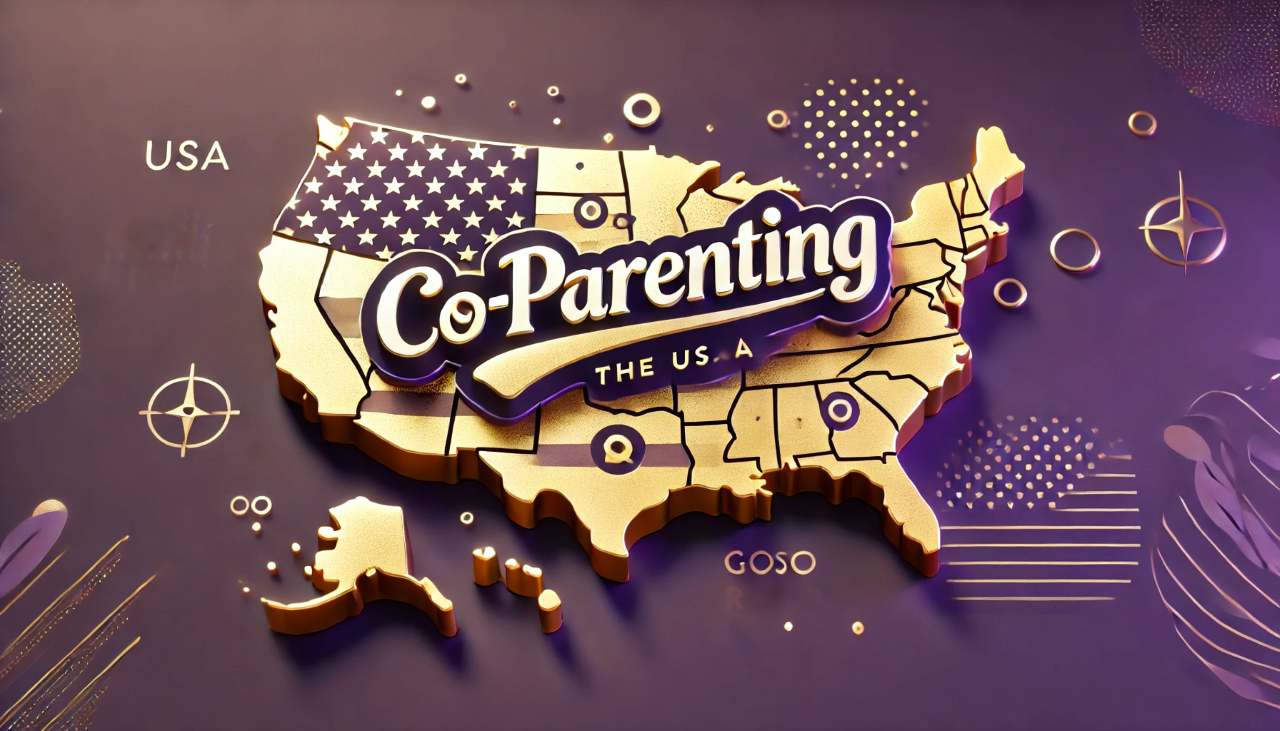Blended families, LGBTQ+ parents, and platonic co-parenting partnerships are reshaping American households—yet your legal rights can change the moment you cross a state line. More than 70 family-law bills were signed in 2024-25, including California’s new child-support formula and Maryland’s shared-parenting presumption. This guide distills every major update so you can draft a rock-solid parenting plan, wherever you live.
The Legal Framework in 2025
Three federal acts form the foundation—UCCJEA (jurisdiction), UIFSA (interstate child support), and the Respect for Marriage Act (portability of marriage). Everything else—parenting-time schedules, relocation rules, even the words custody vs. parental responsibilities—is crafted state-by-state. Know your local terminology before you draft.
Five Nationwide Trends to Know
- Shared-parenting presumptions. Kentucky, Arkansas, Oklahoma, and—new for 2025—Maryland now presume equal parenting time unless proven otherwise.
- Modern child-support math. California’s SB 343 overhauled income caps; similar bills are pending in Oregon and Illinois.
- Multi-parent orders. Maine now allows more than two legal parents in a single decree—ideal for LGBTQ+ and donor families.
- Mandatory education. Tennessee, Arkansas, and Nevada require a co-parenting course before the final order.
- Digital-age clauses. Washington, Colorado, and Florida now require provisions for social-media, e-health-record access, and virtual visitation.
Snapshot: 25 States to Watch
Below are the headline changes that could impact your parenting-plan strategy.
- Alabama: First-right-of-refusal codified statewide.
- Alaska: Judges may approve alternating urban/village calendars for Native families.
- Arizona: Parenting plans must address children’s social-media use.
- California: New child-support calculator and expanded virtual-visitation rules.
- Colorado: “Parental responsibilities” replaces custody; co-parenting app fees are reimbursable.
- Florida: Judges must justify deviations from 2-2-3 or 3-4-4-3 schedules.
- Georgia: Relocation notice period extended from 30 to 60 days.
- Illinois: Bill proposes shared-parenting presumption; vote expected December 2025.
- Kentucky: Five-year data show a 21 % drop in litigation post-presumption.
- Maine: Multipart-parent orders legal July 2025.
- Maryland: HB 278 adds a 50-50 presumption plus free mediation vouchers.
- Michigan: Online post-judgment modification portal launches October 2025.
- Minnesota: Day-to-day duties must be spelled out in every plan.
- Missouri: Parenting coordinators can now issue binding tie-break decisions.
- New Jersey: LGBTQ+ anti-bias clause added to custody statute.
- New Mexico: Tribal courts retain concurrent jurisdiction in cross-cultural cases.
- New York: Annual custody-order audits required in counties over three million residents.
- North Carolina: PTSD-aware guidelines for veteran parents effective March 2025.
- Ohio: Right-of-first-refusal now statewide.
- Oklahoma: Shared-parenting presumption SB 1270 took effect November 2024.
- Pennsylvania: Whole-family evaluation pilot in Philadelphia Family Court.
- Texas: Parents can opt into equal-time schedules without a hearing.
- Tennessee: Four-hour co-parenting class is mandatory (virtual accepted).
- Utah: AI-generated communication logs now admissible evidence.
- Washington: Digital-records/access clause required in every plan.
Seven Best Practices for 2025 Co-Parents
- Parallel parent first. Shift to flexible shared care once conflict subsides.
- Use a court-recommended app. Communication logs are admissible and time-stamped.
- Spell out tele-health. Decide who schedules virtual visits and pays co-pays.
- Index travel costs. Attach IRS mileage-rate tables for automatic inflation adjustments.
- Annual check-up. Review your plan every year at report-card time.
- Document everything. Real-time notes beat memory in court.
- Stay child-centric. If a clause doesn’t improve your child’s week, delete it.
Co-Parenting Across State Lines
When parents live in different states, home-state jurisdiction under UCCJEA controls. File a Notice of Intended Move at least 60 days ahead and secure a stipulated modification. Verify that your support order follows UIFSA so wage garnishments work seamlessly.
Tech Tools & Mental-Health Resources
- OurFamilyWizard & Co-Parently: Court-approved apps for messaging, expenses, and schedule swaps.
- Tele-therapy add-on: Many state courts now accept licensed virtual counselors as “parent coordinators.”
- Military OneSource: Free mediation for active-duty families in 45 states.
Build Your Parenting Plan with RattleStork
Ready to translate legal know-how into a thriving co-parenting partnership? RattleStork matches you with vetted partners, offers state-specific plan templates, and connects you with licensed family-law pros—all in one secure app.

Conclusion
Modern co-parents need two things to thrive: up-to-date knowledge of state statutes and a plan flexible enough to grow with their child. Use the insights above, document every decision, and revisit your agreement yearly. The law may vary by ZIP code, but a stable, supportive childhood is universal.

